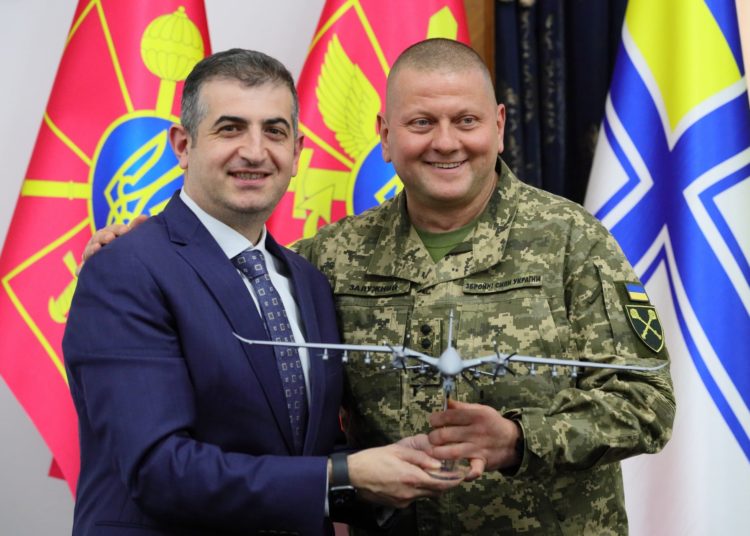Levent Kenez/Stockholm
Turkish President Recep Tayyip Erdoğan last week paid a one-day visit to Ukraine, which is on the verge of being invaded by Russia, signing a number of bilateral agreements and further developing relations between the two countries.
Undoubtedly, the most important was the Framework Agreement for Cooperation in the Fields of High Technology, Aviation and Space, which sounds like a routine agreement to many, but not to arms industry experts.
Shortly after the signing ceremony, Haluk Bayraktar, CEO of Baykar Makina, which produces the Bayraktar TB2 military drones used by the Ukrainian army, expressed his gratitude on Twitter with messages in Turkish and Ukrainian.
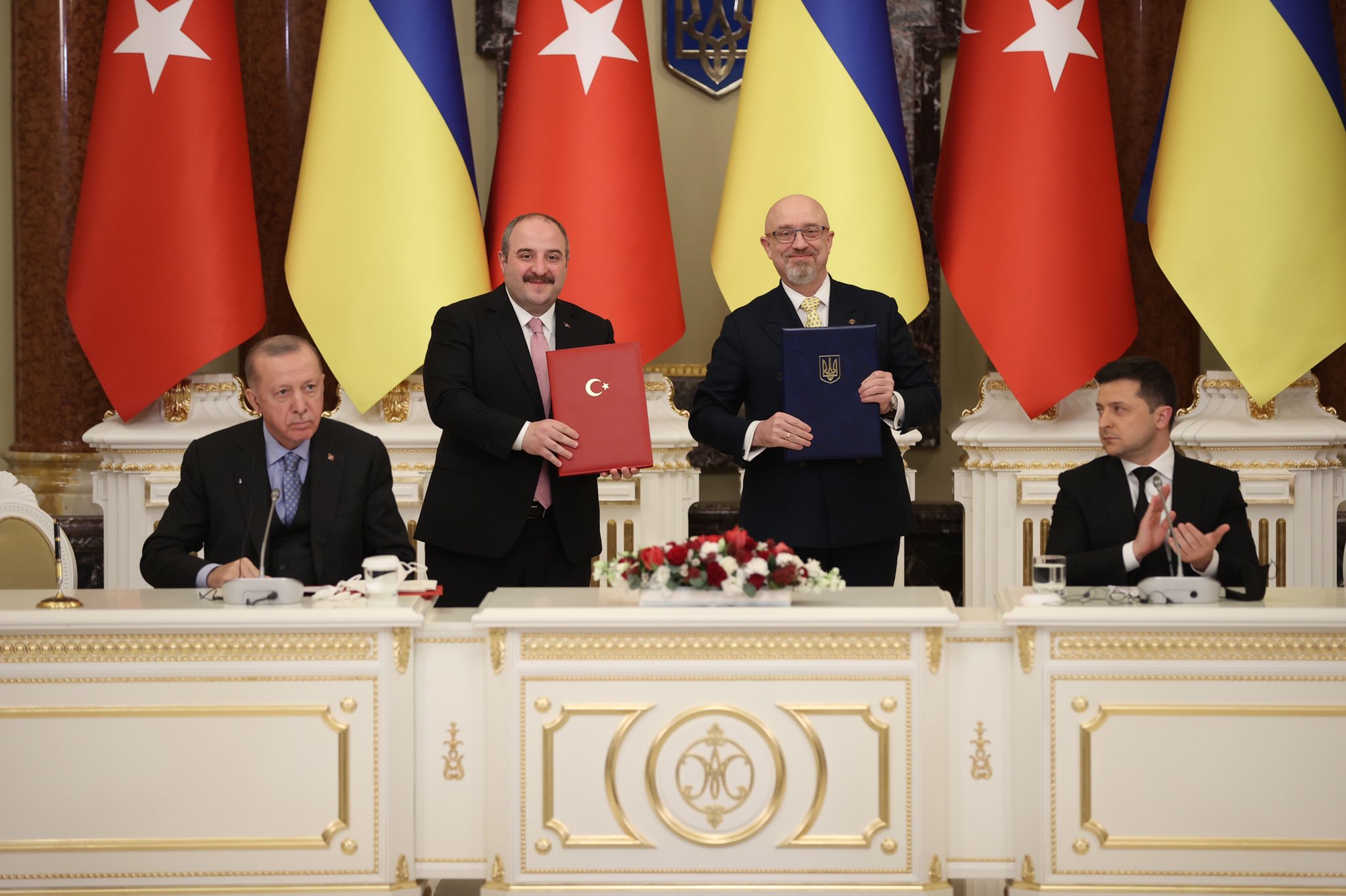
Thanking Erdoğan — who chose his words carefully during a joint press conference so as to not anger Russian President Vladimir Putin, who is expected to visit Ankara soon — for his efforts to act as a mediator between Ukraine and Russia, Ukrainian President Volodymyr Zelensky said the agreement would expand the production of Baykar Makina’s unmanned aerial vehicles (UAVs) in Ukraine.
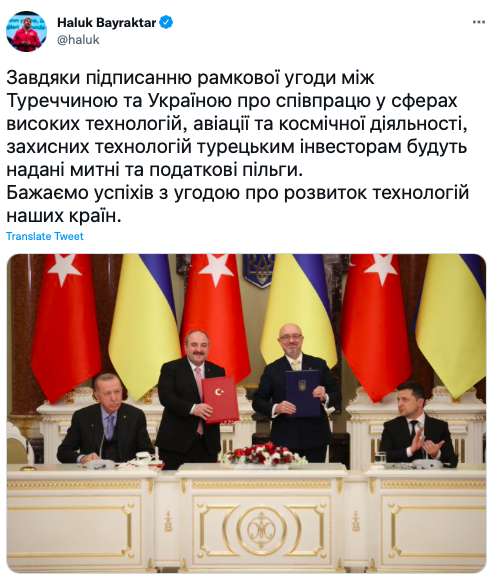
Baykar Makina is a family business in which Erdoğan’s son-in-law Selçuk, Haluk’s brother, is also a partner, whose products Erdoğan carries out intense diplomacy to sell during all his official visits.
Selçuk’s Baykar not only takes advantage of all state facilities but also earns high profits in the local and international market with the sale of weapons, for which the only decision-maker is his father-in-law. An important reason for choosing Turkish drones is that Turkey does not have a long export approval process, unlike the US and the European Union.
Baykar has been selling military drones to Ukraine since 2019. The trade, which started with six TB2 model Bayraktar UAVs, continued with the delivery of an additional five to the Ukrainian Navy last year. Military experts claim that Turkey has sold more UAVs to Ukraine than announced.
The commander-in-chief of the Ukrainian Army, Valeriy Zaluzny, announced last year that they had 12 TB2s in their inventory. According to news reports published by media outlets close to the Turkish government, Ukraine wants to increase its number of UAVs to 48.
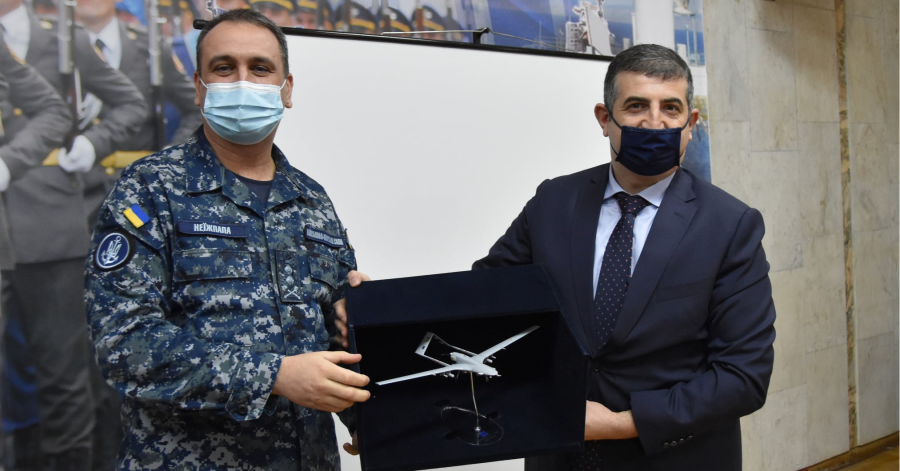
Turkey’s sale of military drones to Ukraine caused tensions with Russia last October. Ukrainian state television broadcast a video showing a Turkish-made military drone used against Russian-backed forces in the eastern Donbas region on October 23, 2021.
The Kremlin said the following day that its fear about Turkey’s decision to sell strike drones to Ukraine was being realized and that the Turkish drones risked destabilizing the situation in eastern Ukraine, while President Zelensky told the press that the use of Turkish strike drones in the conflict in Donbas was defensive and does not violate any agreements.
However, Turkey claims it has no responsibility for how the drones it sells are used. “If a country buys them from us, they are no longer Turkish,” Foreign Minister Çavuşoğlu told reporters after he met with his Russian counterpart, Sergei Lavrov, at the G20 summit in Rome in November 2021.
“Perhaps Turkey has produced it, but it belongs to Ukraine,” he said. Nevertheless, he also called on Ukrainian authorities to stop referencing Turkish drones or Turkey when speaking of the drones.
Answering questions from lawmakers in the parliamentary Planning and Budget Committee on November 4, 2021, Çavuşoğlu said Turkey encounters Russian-made arms in its fight against hostile groups in various places and defended the sale of drones to Ukraine, referring to Russian arms found in the hands of anti-Turkey groups ranging from the Kurdistan Workers’ Party (PKK) to the Libyan National Army (LNA) and Armenian militia in Nagorno-Karabakh.
Russian planes target Bayraktar at 01:05 seconds of the video.
However, the Russians employed an interesting method to show how serious they are, using Bayraktar Akıncı TİHAs (Attack Unmanned Aerial Vehicles) as the target aircraft in a promotional video of the fifth-generation SU-75 Checkmate fighter jet, which was introduced at the Dubai Air Show on November 16, 2021.
The Russians had taken the Bayraktar drone, which was shot down in Libya, to Russia for examination. According to Russian sources, 15 Bayraktar drones were allegedly shot down by Armenians during the Armenian-Azerbaijani conflict in 2020.
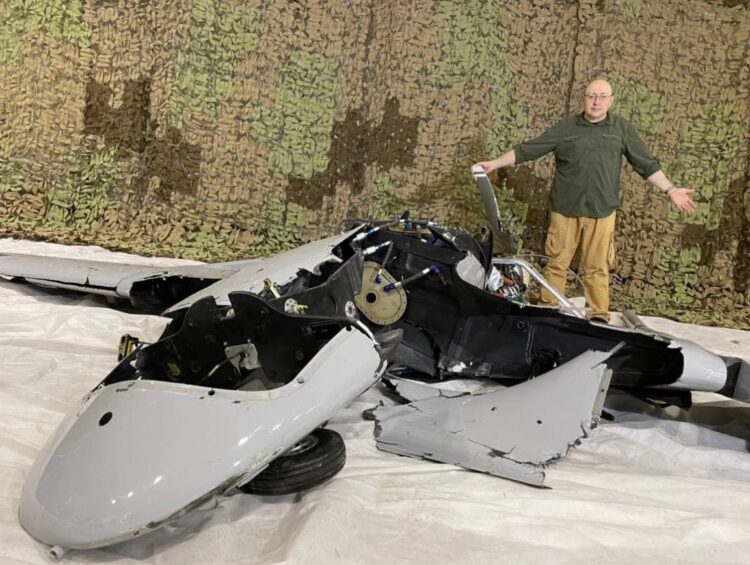
Under the new agreement, Ukraine will allocate land for the Bayraktar TB2 UAV production facility for a period of 49 years and provide a number of incentives. Parts and materials used in the production of the UAVs will be exempted from customs duties. All financial and personnel information regarding the new facility will be kept confidential, Nordic Monitor has learned.
In addition to the UAV factory, a training center will also be built. Baykar will be exempt from income tax for 10 years due to its investments. The expiration of the agreement is January 1, 2035.
For Baykar, which currently uses engines from Ukrainian companies Ivchenko-Progress and Motor Sich in the military drones they produce, the production facility in Ukraine will also provide convenience in terms of logistics and time.
Meanwhile, Baykar announced that the company recently signed the first export contract for the state-of-the-art unmanned combat aerial vehicle (UCAV) Bayraktar Akıncı, one of the company’s newest products. The announcement, which did not reveal the country to which it was sold, emphasized that delivery would take place in 2023. Defense industry experts stated that the sale was made to Ukraine, but due to current tensions between Russia and Ukraine, the name of the country was deliberately not disclosed.
Haluk Bayraktar, a popular name in Ukraine
Bayraktar’s CEO Haluk Bayraktar has long had close relations with Ukrainian military officials and diplomats.
Interestingly, in 2017 he tweeted an article titled “Ukraine Hates Its New Donated American Drones,” claiming they were easily jammed by Russian-backed forces. It seems they contacted the Ukrainians to offer a better alternative.
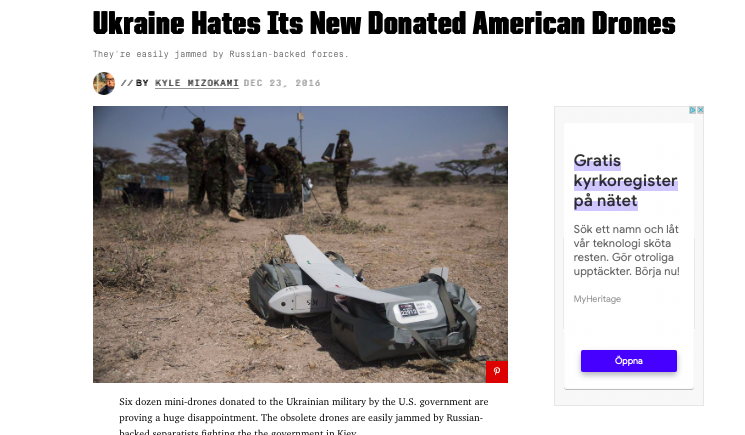
Bayraktar, who in 2020 was awarded a state medal by the president of Ukraine for his services to Ukraine and Ukrainian-Turkish relations, was the guest of honor at ceremonies celebrating the 30th anniversary of Ukrainian independence during which Bayraktar’s drones were exhibited in the official parade.
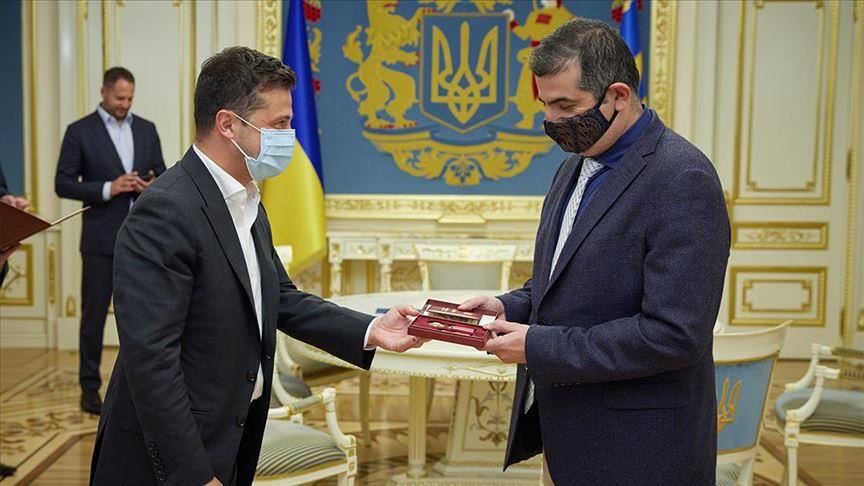
Lastly, Haluk endorsed a notorious ruling party troll, who announced an aid campaign by Turkish intelligence backed-jihadist charity group İnsan Hak ve Hürriyetleri ve İnsani Yardım Vakfı, or IHH, for those in need in Syria’s Idlib region
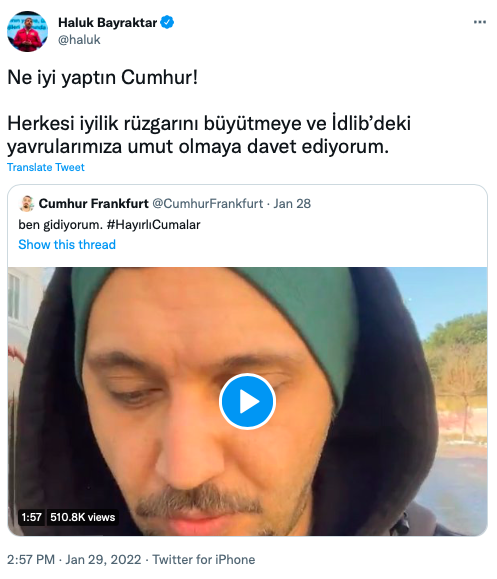
Haluk previously was appointed as a member of the board of directors of the Scientific and Technological Research Council of Turkey (TÜBITAK) by Erdogan in 2018, which the opposition strongly opposed due to nepotism.

